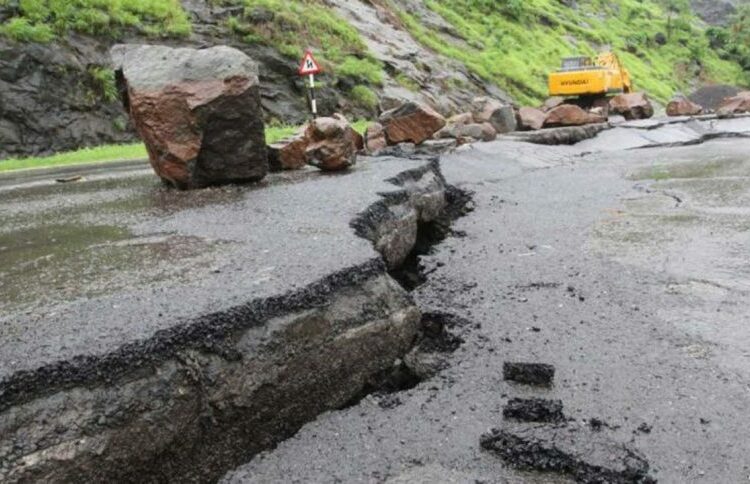Residents of Abuja living at Mpape in Bwari Area Council have continued to live in panic over continued suspected tremors and vibrations in parts of the city.
However, the Nigerian Geological Survey Agency has allayed the residents’ fears about the earth tremors experienced in the area, urging them not to panic.
The residents said that nobody has come out to tell them the real cause of the tremor, but they believe that it was because of the regular blasting of rocks by mining companies in the area that may have caused it.
A resident of the Katampe axis of Mpape, Shedrack Illiasu, said that the tremors and vibrations were more than the usual ones they have experienced during the blasting of rocks in the area by quarry companies.
“Since the day that the tremor happened, I and my family have not been able to sleep at night, for fear of any negative eventuality. If this was the first time, we would not be that scared, but it is the second time.
“Our prayer is that it not be a sign of an earthquake that is waiting to happen. That is the fear of everyone in this community. We are all living in fear and we pray that the solution should not be beyond the government,” he said.
Also, the chairman, of Mpape Hills Landlord Association, Dr Ebenezer Adebisi, said that the residents had experienced the vibration in the last five days.
Adebisi said although it happened some years ago, it had become more consistent in the past five days.
He said the vibration was more intense throughout Sunday and Monday night, adding that they do not know what would have caused the vibration.
“I have also confirmed that those in Gwarinpa and Katampe areas are also experiencing the same thing, but the government has not said anything officially up till now.
“We must let Nigerians know the situation now; we are calling on the Nigerian government and the Nigeria Geological Agency to come to the rescue of the resident,” he said.
He said urgent measures needed to be taken before things got out of hand, urging the government to advise the residents on the next line of action.
A statement by the NGSA director-general, Professor Olusegun Ige, on Wednesday disclosed that the agency monitored the tremors and found them to be low and do not pose any threat to the environment.
“The NGSA Monitoring Station at Katampe has been capturing several significant ground motions with high moment magnitudes in the past five days, beginning from September 13, 2024, till date.
“Of these incidents, only one mild event was recorded on September 13th. Six of these events were captured on the 14th of September, while over 21 events were captured on the 15th with higher intensities.
“More than twenty events were recorded on the 16th of September. The intensity and frequency of the tremor appear to increase from September 13th to 16th. There are a few weak events recorded today, 17th September,” he stated.
Ige noted that preliminary analysis of the waveforms showed that the sources of the ground motions are less than 5 km away from the monitoring station and that the NGSA team also visited the affected areas for on-the-spot assessments of the events.
“From the accounts of the residents of the affected areas, the observations by the NGSA team, and findings from earlier interpretations of the airborne geophysical data over the area and adjoining areas.
“The following conclusions were made that the tremors are a result of accumulated stress along the identified faults and released seismic energy, which may have travelled through associated fractures to areas where the tremors were felt around the FCT.
“There are multiple epicentres associated with the recent tremor. Most of the epicentres are located northeast of the NGSA-5 Seismic Station around the Mpape axis, while a few are located southwest of the Station around the Katampe axis,” he said.
The DG explained that the intensities of the tremors are weak to light, ranging from III-IV on the Modified Mercalli Scale, and pose a very low-level threat.
“The residents of Mpape, Katampe, Maitama, and other areas where the tremors were felt are advised not to panic as the tremors can be generally described as low.
“The agency is keeping a close monitoring of the situation and will provide updates as may become necessary. The general public should also be aware that the NGSA Seismic Stations are being monitored in real-time to ensure prompt alerts on any major event,” he said.





